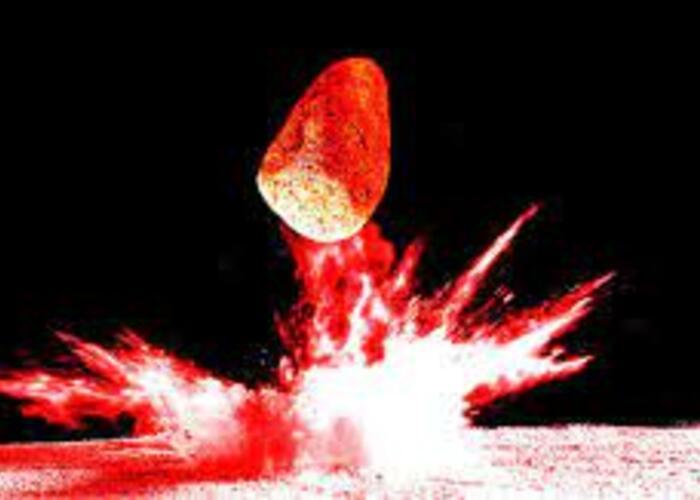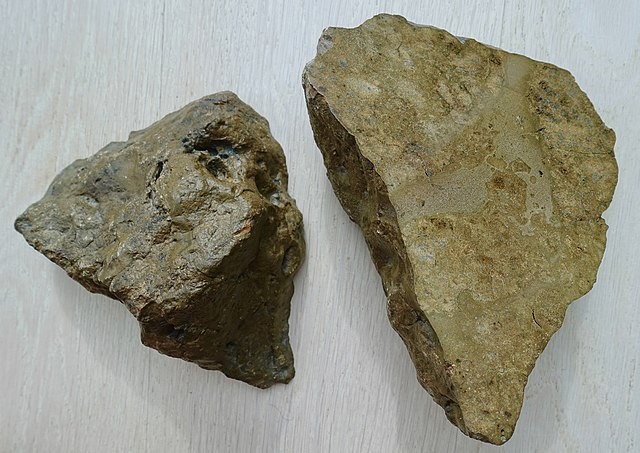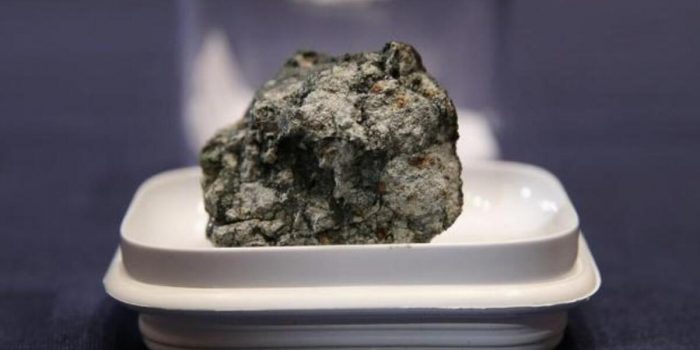Earlier this week, an intriguing incident emerged from France, where a woman claimed to have been struck by a small, rebounding piece of a meteorite while simply enjoying a cup of coffee with a friend. The news sparked curiosity and wonder, as such occurrences are exceedingly rare, with only a single recorded incident in the history of someone being hit by a falling meteorite.
While the woman’s account of the event is fascinating, experts in the field of astronomy and geology have expressed their doubts about the rock’s extraterrestrial origins. Although they do not deny that a rock struck the woman, they argue that the chances of it being a genuine meteorite from space are extremely slim.

One of the primary reasons behind their skepticism lies in the appearance of the rock. Upon examination, the rock pictured in Les Dernières Nouvelles d’Alsace (DNA), the French newspaper that first reported the incident, bears little resemblance to confirmed meteorites. Geologist Vaubaillon likens it to an ice cube losing its angular pieces as it melts, suggesting that it is more likely a volcanic rock with frozen lava bubbles within it.
Furthermore, the French astronomy publication Ciel & Espace published a report debunking the meteorite theory. They reasoned that if a blazing meteorite had indeed fallen from the sky and hit the woman, it would have carried enough energy to crash through her roof. Additionally, witnesses in the area would have noticed a bright object streaking through the sky, making such a celestial event hard to miss.

Astronomer François Colas, affiliated with the Fireball Recovery and InterPlanetary Observation Network, supported this view, affirming that an exceedingly bright object like a meteorite would not go unnoticed.
Aside from the appearance and witness accounts, there is a statistical improbability of the event. Earth’s vast oceans cover over 70 percent of its surface, meaning that around two-thirds of meteorite falls end up in the ocean, and most of the remaining ones land in remote locations such as fields, forests, and deserts.
Geologist Vaubaillon provided a striking statistic, estimating the chances of someone being struck by a falling meteorite at a staggering 1 in 100 trillion. Such odds indicate how incredibly rare this event would be, if it were indeed caused by an extraterrestrial object.


